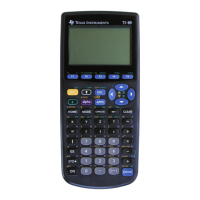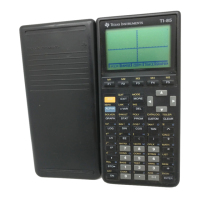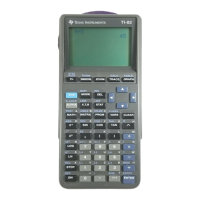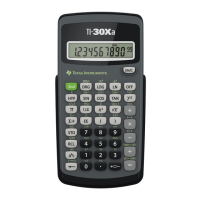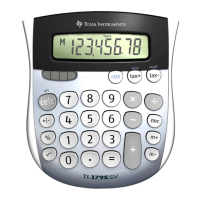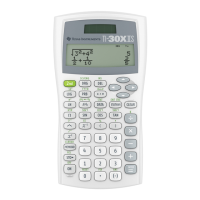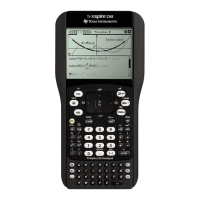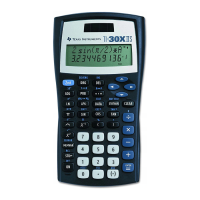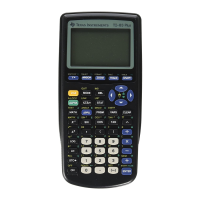á(t^2*ℯ^(-s*t),t,0,∞)
If the mode is set to Rectangular or Real, undef is returned. If we constrain the soluton for s>0, like
this:
á(t^2*ℯ^(-s*t),t,0,∞)|s>0
but leave the complex format set to rectangular, the 89/92+ is 'busy' for a long time, then returns the
original integral. However, if we constrain the solution to s>0 and set the mode to Real, the calculator
quickly returns the correct answer: 2/s
3
.
Here is another integral that is sensitive to mode settings:
¶
−∞
∞
1
4
✜
(
p
2
+z
2
)
1.5
dz =
1
2
✜
p
2
which is entered as
á(1/(4*Œ*(p^2+z^2)^(1.5)),z,-∞ ,∞)
I get these results on my TI-92 w/Pluse module, AMS 2.03. Real and Rectangular are the Complex
Format mode settings, and Exact and Approx are the Exact/Approx mode settings.
! Real, Exact: returns answer quickly
! Rectangular, Exact: returns answer, not as fast; warning message: "Memory full, some
simplification might be incomplete"
! Real, Approx: can't find integral
! Rectangular, Approx: can't find integral
Mode settings of Real, Exact seem to be the best starting point for symbolic integration.
So the moral of the story is this: if the 89/92+ won't evaluate your integral, try various complex modes
and constraints.
(I lost my note for the credit on this one. Sorry - it's a good one!)
[2.10] CAS square root simplification limitations
The 89/92+ CAS (computer algebra system) rarely treats the square root operator as identical to
raising the argument to the 1/2 power, because, in general, the two operations are not equivalent. For
example,
x
3
2
− x
3
does not simplify to zero. However, the expression does simplify to zero if we restrict x, in other words,
these expressions
or
x
3
2
− x
3
x
x > 0x
3
2
− x
3
x
x
m
0
both correctly return zero.
2 - 5

